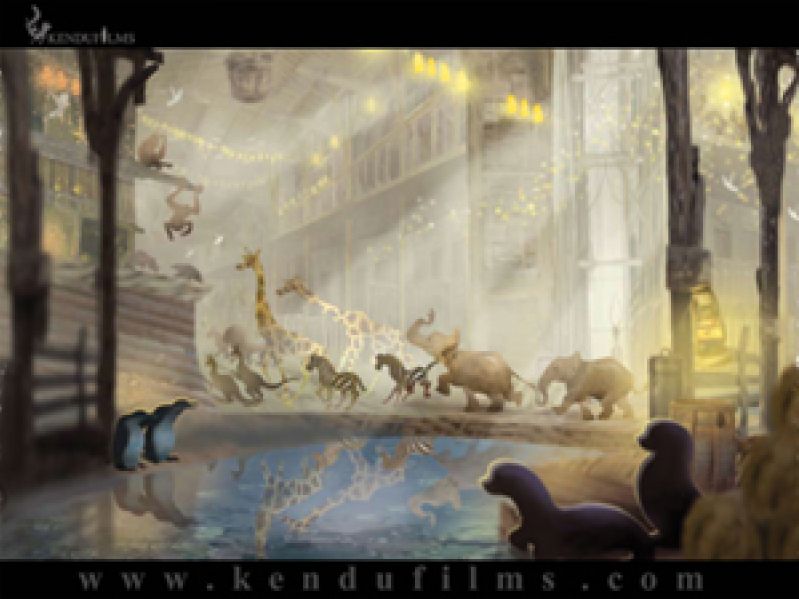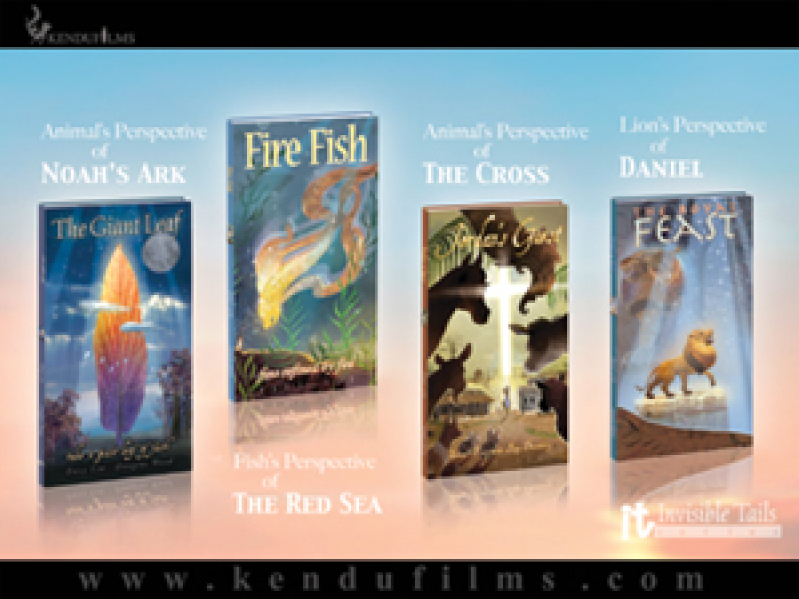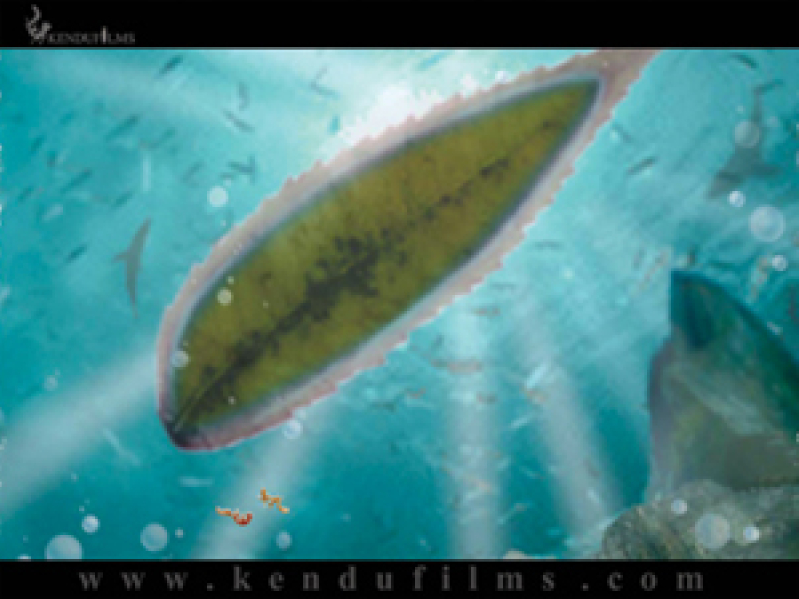


“God Himself is an artist who is filled with imagination and creativity,” said the veteran Disney animator, who is now an independent film producer, illustrator and art director. “Europe’s best artists and musicians in history all have created their best artworks for God, who deserves our best.”
A seasoned professional, Davy Liu has worked for Disney on “Beauty and the Beast,” “Aladdin,” “Mulan,” and “The Lion King” and for George Lucas and Warner Bros. Animation. His illustrations have graced the pages of Time, The Wall Street Journal and Business Week.
In an interview with The Gospel Herald, Liu said that he abandoned his six-figure salary job as an animator in Hollywood in order to fulfill a dream from God – the creation of a 12 series of animation that spreads the gospel message. With confidence, persistence, dream and passion, Liu is determined to offer his best to God.
Liu shared with The Gospel Herald his testimony in a previous interview; this time, he described how he came to receive the inspirations for creating the scripts for the series of 12 Bible-based animations and eventually shooting them into films.
Inspirations from “The Lion King”
At age 19, Liu became the first Chinese animator in Disney, where he learned and worked at the beginning of his career. It was when he was working on “The Lion King” did he received the inspiration for creating a Bible-themed animation series.
The plot of “The Lion King” is actually derived from the story of Joseph from the Bible, where Joseph had received the favor and love from his father, but his brothers hated him and sold him to a very far place. Like Joseph, Simba, the son of Mufasa, was to become the king, but he left his own kingdom to a remote place, idling with his outside friends in the pleasures of life – he forgot who he is. The film depicts Simba’s search for his own identity, the climax of him finding back his identity as the king.
“Everyone is created according to God’s noble image. And we are the sons and daughters of the King of kings,” said Liu. “When making animations, we often take a simple character from an ordinary story and use the animation techniques, blended with the best music and dubbing, to bring out the joys and sorrows in life, and, through them, the theme would then be brought out.”
Animals’ Perspectives of the Bible Stories
With the inspirations from “The Lion King”, Liu conceived the idea of filming a series of exceptional Bible-themed animations. When he was 30 years old, he resigned from his job as Disney, which, at that time, was paying him a six-figure salary, and it was during the golden years of his career, in order to focus on the creation of 12 animation series, where each story would be depicting the Bible stories viewed from the animals’ perspective. He began from scratch, taking responsibilities of the project’s every detail, including script-writing, background scenic drawings, character design, etc.
Up until now, the Taiwan-born Chinese animation artist has completed two 90 page scripts with each page to be one minute long film, which would then be shot into a 90 minute long animation movie. So far, four books have been published: “Giant Leaf”, “Fire Fish”, “Jordan’s Guest”, and “The Royal Feast.” They are condensed version of the script and are published mainly to garner the attention of potential investors for this project.
Liu estimates that around $50 million dollars is needed for the entire animation production. “Shooting an animation takes longer than an average action movie, because, besides the drawing, the film needs special dubbing and music background, so the estimated time is two years.” He has been actively search for investors and is waiting for their responses. Upon meeting his financial criteria, the movie would then be officially filmed.
“Giant Leaf”
Liu then went on to describe the contents of these books. “Giant Leaf” is the story of Noah’s Ark seen through the perspective of animals; “Fire Fish” is the story of Moses crossing the Red Sea from that of fishes; “Jordan’s Guest” is the story of Jesus’ crucifixion from that of the animals’; “The Royal Banquet” is the story of Daniel from that of the lions.
“I received the inspirations for these stories’ contents from devotions. For example, as I read Genesis 6, I’ve always been very curious as to how did God call all these animals into the ark? With that, I’ve wrote the script for “Giant Leaf.”
In “Giant Leaf”, the main character Kendu is a fox who longed to escape from being enslaved by the giant dragon and sought for his freedom. In his dream, he saw a giant leaf, and that initiated his escape and search. In his journey, he met with a monkey named Yitzhak and a koala bear named Odelia, and they’ve became partners in this search for the giant leaf and in the mission to save the other animals from the Animal Eater. To their discovery, the Animal Eater actually wasn’t a monster at all but a place of refuge from the storm – the ark.
Inside the ark were abundant food provided by God, and their other halves were also there waiting for them. While inside the ark, Kendu safely survived the enormous flood that God sent down to wipe out the evilness. As they closed in to the shore, he and his wife Odelia together jumped into the water, which was when he saw the giant leaf. When he looked up from underneath the water, he saw what he thought was the giant leaf in the blue sky – it was the bottom of the ark surrounded by the blue water.
Liu laughed and said, “When I was little, I thought of Jesus as the Animal Eater, who ate a tenth of all my allowances. Most people have misconceptions of Jesus and don’t understand the culture from within, let alone, understanding the Bible. However, when the Bible stories are shown in theatres, the audiences will ask themselves if their lives are also being enslaved like animals in the film? Where is the refuge in life?”
Until today, some of these stories from the script have been published as children’s books, but Liu said that these animations are actually produced for grown-ups. “The truth is that grown-ups really enjoy watching animations – little children do not understand the hidden message. The recent box-office hits such as “Toy Story” and “Up” produced by Pixar all have very touching messages.”
While animations may be highly enjoyed by all ages, only about eight films are produced each year, with Disney producing one per year. Liu believes that there is a big market for the animation movies.
Nothing is More Important - Gaining People’s Lives for the Lord
Since Liu left Hollywood in 1999 to follow God’s calling, he has given his complete attention to the creation of these 12 animation series. Despite his family’s disapproval to his decision and the overwhelming financial pressures at times, he firmly believes that nothing is more important than gaining people’s lives for the Lord.
“When I worked in Disney, deep down in my heart, I was always discontent. At that time, I thought to myself that why is it that movies and artworks produced by Christian film are often times made with low budgets or made in an unattractive manner?” Liu questioned. “I’ve asked God in my prayer, and God told me that it is because good artists have given their best to the world.”
It was then that Liu decided to dedicate himself to the work for God’s kingdom.
“Before God, I’ve prayed to willingly dedicate myself at the time when I’m most youthful and healthy to do God’s work. God deserves the best. I don’t want to wait until retirement at age 65 before doing all this, for I want to give the best to God.”
Although until today, he still hasn’t a hundred percent found the animation investor, Liu deeply believes that the work that God has called him to do will most definitely be accomplished, but it is only a matter of time.
“Now, every day of my life is very joyful despite the financial pressures, but even though I may die tomorrow, I won’t regret it. Because every day of my life is living in God’s will; in face of the life in eternity, the present life is only a short-lived hundred years. I hope to use my talents to glorify God and to store up treasures in heaven.”
[Editor's note: Joanna Wong contributed to the report.]






